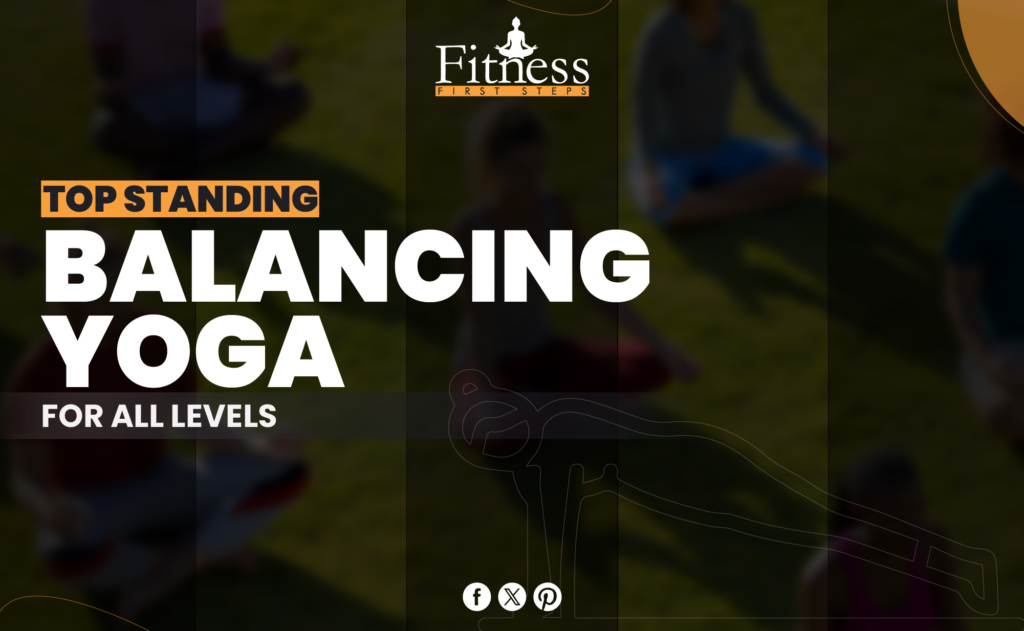Introduction
Mindful yoga for kids, which combines cognizant meditation with regular yoga poses, offers a unique way to enhance kids’ mental health. This balanced practice focuses on helping kids be more aware of and present in the present moment while incorporating yoga poses that are good for their bodies.
When kids combine awareness with yoga, they can improve their ability to focus, deal with stress, and control their emotions. They are taught to be present and focused while doing stretches, breathing exercises, and meditation, which gives them valuable skills for dealing with problems in life.
This blog discusses how mindful yoga for kids can provide physical, mental, and emotional advantages that promote growth and lead to a better, more balanced existence.
Understanding Mindful Yoga for Kids
Definition of Mindfulness and Yoga in the Context of Kid’s Well-Being
For children’s well-being, mindfulness means giving full, active attention to the present moment with love and curiosity. It encourages kids to express themselves without criticism. Yoga releases energy and tension via physical positions and breathing, boosting strength, flexibility, and relaxation. These techniques integrated into mindful yoga for kids nurture a child’s mental, physical, and emotional wellness holistically.
How Mindful Yoga in Kids Combine Movement, Breathwork, and Mindfulness
Mindful yoga for kids is engaging because it mixes yoga’s exercise with mindfulness’s focus. Children learn body awareness and coordination by moving safely and supportively while exploring boundaries. Focused breathing techniques help kids relax. Kids enjoy guided meditations and mindful walking because they suit their interests. This protects youngsters’ physical and mental health with mindful yoga.
Importance of Introducing Mindful Yoga in Kids at an Early Age
Getting kids involved in mindful yoga can significantly affect their growth. Here are a few important things that show how important it is:
- Foundation for Lifelong Health Habits: Starting mindful yoga early in life can help you stay committed to your health and well-being for the rest of your life. It teaches you the value of being physically fit and mentally clear from a young age.
- Enhancement of Focus and Concentration: Regular practice can improve kids’ focus and attention spans, making it easier for them to concentrate on schoolwork and other things.
- Stress and Anxiety Management: Mindful yoga teaches kids healthy ways to deal with stress and worry, giving them the tools to face problems calmly and carefully.
- Improved Emotional Regulation: These activities help kids better understand and control their feelings, making it easier to deal with problems and get along with others.
- Increased Empathy and Compassion: By making kids feel calm and happy inside, mindful yoga can help them understand and care about others, leading to more kindness and understanding in their social circles.
- Development of Physical Coordination and Balance: The physical part of yoga helps kids improve their coordination and balance, which is suitable for their general physical development and makes them less likely to get hurt while doing other things.
Physical Benefits of Mindful Yoga in Kids
Children who do mindful yoga experience many physical benefits for their health and growth.
Improved Flexibility, Balance, and Coordination
Mindful yoga for kids helps kids become more flexible, which is crucial for a growing body. Regular practice lengthens muscles and increases joint range. Yoga also involves concentration and control, improving balance and coordination in children’s daily lives and physical activities.
Strengthening of Muscles and Bones
Yoga positions work multiple muscle groups together, strengthening and building bone density, which is crucial for children’s bone growth. Mindful yoga for kids builds physical strength in a safe, non-competitive, and supportive setting.
Promotion of Healthy Posture and Body Awareness
Healthy posture and body awareness are more crucial than ever due to screen time and sedentary lifestyles from a young age. Mindful yoga for kids promotes natural spinal curves and prevents back problems. Through yoga, children learn body awareness and alignment.
Reduction of Physical Tension and Stress in the Body
Children can hold stress and tension like adults. Mindful yoga for kids uses deep breathing and mindfulness meditation to relieve tension. Focusing on the present and combining physical poses with breath work helps youngsters relax their muscles and reduce stress, improving their physical health.
Mental Benefits of Mindful Yoga in Kids
Including mindful yoga for kids in daily life has benefits for more than just their physical health. It also has significant mental benefits that help their general health and development.
Enhanced Focus, Concentration, and Attention Span
Mindful yoga for kids improves focusing and maintaining concentration for extended amounts of time. Kids can improve their attention spans in school and everyday life by practicing yoga’s thoughtful aspect, which teaches them to focus on the present moment.
Development of Self-Regulation and Emotional Resilience
Children who practice mindful yoga are better able to control their emotions because they have self-regulation tools. Children who practice mindfulness meditation and controlled breathing gain self-calming skills that build emotional resilience and enable them to handle life’s ups and downs with a calm and collected mind.
Reduction of Anxiety and Promotion of Relaxation
In today’s fast-paced society, children’s anxiety can harm their mental and physical health. By encouraging a state of calm through moderate yoga poses and mindful breathing exercises, mindful yoga for kids is a natural cure for anxiety. This method reduces anxiety, calming children.
Improved Cognitive Function and Academic Performance
Mindful yoga for kids improves cognitive functions and academic achievement. The practice increases memory, cognition, and organization, boosting creativity and problem-solving. This overall cognitive enhancement helps youngsters flourish academically and creates a basis for lifelong learning and achievement.
Emotional Benefits of Mindful Yoga in Kids
Kids who do mindful yoga improve their physical and mental health and experience profound emotional effects that are important for their growth and relationships with others.
Cultivation of Self-Awareness and Self-Esteem
Mindful yoga helps youngsters become self-aware by tuning into their feelings, thoughts, and body sensations in the present. Increased awareness builds self-esteem, assisting children to feel confident and accepted.
Promotion of Empathy, Compassion, and Kindness Towards Self and Others
Mindful yoga teaches kids empathy, compassion, and kindness. Discussions and activities in these programs help students consider their emotions and those of others, fostering empathy and compassion for others. Healthy, supportive partnerships require empathy.
Effective Coping Mechanisms for Managing Emotions and Stress
Kids learn to manage stress and emotions via mindful yoga. Yoga and mindfulness help kids calm down and handle anxiety and despair. Self-soothing and emotional regulation are essential life skills.
Strengthening of Social Connections and Peer Relationships
Group yoga gives kids a sense of community and connection. Mindful yoga teaches kids teamwork, cooperation, and respect, improving social skills and peer interactions. A supportive social environment is crucial for emotional growth and well-being.
Techniques and Practices in Mindful Yoga for Kids
For kids to benefit from mindful yoga, techniques, and practices must be changed to fit their needs and interests. Here are some methods that work:
Fun and Engaging Yoga Poses and Sequences
Make yoga poses and sequences enjoyable, engaging, and appropriate for kids’ interests and skills. By making yoga fun and imaginative, kids are more inclined to join. Renaming poses after animals or nature makes them more approachable and fun for kids.
Simple Breathing Exercises and Relaxation Techniques
Basic breathing exercises and relaxation methods can help kids stay calm and concentrate. For kids, techniques like “wave breathing” and “balloon breathing” can help make focused breathing less mysterious, making it easier and more fun.
Mindfulness Activities
Mindfulness tasks, like coloring, walking, or eating with awareness, can be added to yoga to help kids naturally connect with the present moment. Through these exercises, they can learn more about mindfulness and how to use it in their daily lives.
Incorporation of Storytelling, Music, and Playfulness
Sharing stories, music, and fun makes mindful yoga more engaging for youngsters. Storytelling may drive the yoga sequence, with each posture symbolizing a portion of the tale. At the same time, music and playfulness create a positive and welcoming setting for children to practice mindfulness and yoga.
Integrating Mindful Yoga into Daily Life
For kids, making mindful yoga a part of their daily lives, at home or school, can significantly increase its positive effects. Here are some ideas, tips, and techniques to make a good space for kids to practice yoga and mindfulness.
Strategies for Incorporating Mindful Yoga into School Curriculum or Home Routines
Mindful yoga for kids can be practiced daily in schools and households. Start the day with thoughtful breaths and easy stretches. Brief yoga breaks between lessons or other activities might help kids focus and recharge. Setting up mindful yoga for kids as a joyful family activity can improve physical and mental health and strengthen family relationships.
Tips for Parents, Teachers, and Caregivers to Support Children’s Mindful Yoga Practice
Adult support is vital to practice mindful yoga for kids. Participating in yoga sessions together, delivering positive reinforcement, and creating a welcoming yoga setting can encourage their practice. Parents, teachers, and caregivers can learn mindfulness and yoga to understand better and guide children.
Creating a Supportive Environment for Children to Explore Mindfulness and Yoga with Curiosity and Joy
Mindful yoga for kids works best in an accepting, curious, and joyful environment. Provide a secure, comfortable yoga space without judgment or competitiveness. Encourage youngsters to practice with an open heart and praise their attempts rather than their performance to foster self-exploration and self-acceptance. Creative features like stories, music, and games can make yoga fun for youngsters and inspire a lifetime love of mindfulness and well-being.
Conclusion
Mentally, emotionally, and physically healthy kids can benefit from mindful yoga for kids. It can help them focus and concentrate better, control their emotions, and develop empathy. It can also teach them healthy ways to deal with stress and build strong social bonds.
It’s impossible to say enough about how powerful mindful yoga for kids can be. By encouraging a practice based on mindfulness and physical exercise, we give our kids the tools to deal with life’s challenges with strength, compassion, and a clear head. Including mindful yoga in a child’s daily life can make a huge difference in their health, happiness, and general well-being, setting them up for a balanced and satisfying life.




